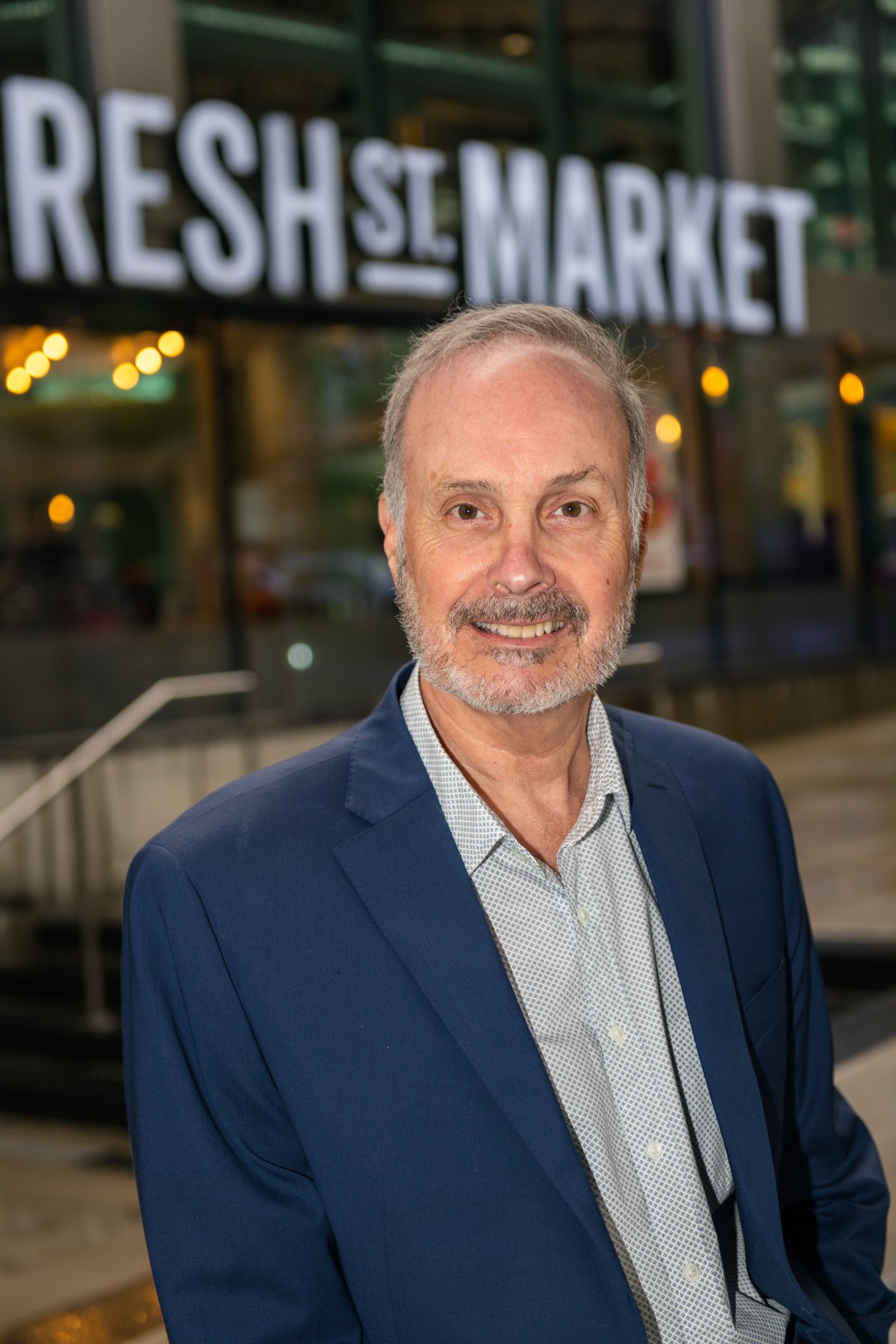Mark McCurdy: Unveiling The Depths Of Gospel Scholarship
In the vast and intricate world of biblical studies, certain scholars stand out for their meticulous research, profound insights, and unwavering dedication to understanding ancient texts. One such figure is Mark S. McCurdy, an academic whose work has significantly enriched our comprehension of the Synoptic Gospels, particularly the Gospel of Mark. His contributions extend beyond mere translation, delving into the nuanced linguistic, historical, and theological layers that often elude casual readers, offering a clearer lens through which to view foundational Christian narratives.
Dr. McCurdy's scholarship is characterized by a commitment to rigorous textual analysis and a deep appreciation for the original Greek and Hebrew contexts of the Bible. Through his extensive research and publications, he has provided invaluable perspectives on key passages, helping to illuminate the profound messages embedded within these ancient writings. This article explores the academic journey and significant contributions of Mark S. McCurdy, highlighting how his expertise helps bridge the gap between ancient texts and contemporary understanding, making complex theological concepts accessible and relevant.
Table of Contents
- The Scholarly Journey of Mark S. McCurdy
- Early Life and Academic Foundations
- A Deep Dive into Theological Studies
- Unpacking the Gospel of Mark: McCurdy's Contributions
- Methodologies and Interpretive Frameworks
- Impact on Contemporary Theology and Biblical Studies
- Mark McCurdy and the Quest for the Historical Jesus
- Navigating Textual Nuances: A Case Study from Mark 1
- Beyond Academia: Public Engagement and Legacy
- The Enduring Relevance of Mark McCurdy's Scholarship
The Scholarly Journey of Mark S. McCurdy
Mark S. McCurdy is a distinguished Associate Professor of Theology at the University of St. Thomas, a renowned institution known for its robust theological programs. His academic career is marked by a consistent pursuit of knowledge and a dedication to teaching, shaping the next generation of theologians and biblical scholars. Dr. McCurdy's work focuses primarily on the New Testament, with a particular emphasis on the Synoptic Gospels (Matthew, Mark, and Luke) and the historical Jesus.
Early Life and Academic Foundations
While specific details of Mark S. McCurdy's early life are not widely publicized, his academic trajectory suggests a foundational commitment to intellectual inquiry and theological exploration from an early stage. His educational background likely includes rigorous training in classical languages, ancient history, and philosophical thought, all of which are essential for deep biblical scholarship. These formative years would have equipped him with the critical tools necessary to approach complex religious texts with both academic rigor and spiritual sensitivity.
A Deep Dive into Theological Studies
Dr. McCurdy's advanced studies culminated in a Ph.D. in New Testament from a prestigious institution, solidifying his expertise in biblical interpretation and theological discourse. His doctoral research would have involved an intensive study of the Greek New Testament, textual criticism, historical contexts, and the various interpretive methodologies applied to biblical texts. This comprehensive training forms the bedrock of his authoritative contributions to the field, allowing him to navigate the intricate landscape of ancient manuscripts and their modern implications with unparalleled skill.
Personal Data & Biodata: Mark S. McCurdy
| Full Name | Mark S. McCurdy |
| Profession | Associate Professor of Theology, Biblical Scholar |
| Institution | University of St. Thomas |
| Primary Research Areas | New Testament, Synoptic Gospels, Historical Jesus, Hermeneutics, Biblical Interpretation |
| Notable Publication | "The Historical Jesus and the Kingdom of God" (2010) |
| Academic Focus | Linguistic and historical analysis of biblical texts, theological implications |
Unpacking the Gospel of Mark: McCurdy's Contributions
One of the central pillars of Mark S. McCurdy's scholarly work is his profound engagement with the Gospel of Mark. This gospel, often considered the earliest and most concise of the Synoptics, presents unique interpretive challenges and theological richness. Dr. McCurdy's approach to this foundational text is characterized by a meticulous attention to detail, a deep understanding of the original Greek, and an awareness of the historical and cultural milieu in which it was written. His insights help illuminate passages that might otherwise be misunderstood or overlooked by contemporary readers.
For instance, in his analysis of Mark 1:8 or in Mark 1:13, the Greek for "tempted" can also mean "tested". This subtle yet significant distinction is crucial for understanding the wilderness narrative of Jesus. McCurdy emphasizes that seeing Jesus' experience as a "testing" rather than merely a "temptation" aligns more closely with the broader biblical theme of divine preparation and faithfulness, akin to the testing of Israel in the wilderness. This kind of linguistic precision is a hallmark of his scholarship, revealing deeper theological truths.
Similarly, when examining Mark 1:40, the Greek word traditionally translated "leprosy" was used for various diseases affecting the skin. Dr. McCurdy would highlight that this broader understanding changes how we perceive the social and medical context of the time. It underscores that Jesus' healing acts were not just miraculous cures but also radical acts of social reintegration for those marginalized by various skin conditions, challenging the prevailing purity laws and societal ostracism. This attention to socio-historical context enriches our understanding of Jesus' ministry and its revolutionary implications.
McCurdy also pays close attention to the narrative structure and theological claims of the Gospel. The opening lines, "The beginning of the gospel of Jesus Christ, the Son of God," are not merely an introduction but a profound theological statement. He would analyze how Mark immediately establishes Jesus' identity as both the Messiah (Hebrew) and Christ (Greek), both meaning "anointed one," and explicitly as the Son of God. This bold declaration sets the stage for the entire narrative, framing Jesus' life, death, and resurrection within a divine plan. His work often delves into how such foundational statements influence the entire narrative arc.
Methodologies and Interpretive Frameworks
Mark S. McCurdy employs a multi-faceted approach to biblical interpretation, integrating various methodologies to achieve a comprehensive understanding of the texts. His primary frameworks include:
- Historical-Critical Method: This involves examining the historical context of the texts, including the cultural, political, and social conditions of the time. McCurdy meticulously researches the world of first-century Palestine to understand the original meaning and audience reception of the Gospel of Mark.
- Linguistic Analysis: As evidenced by his focus on specific Greek words like "tempted/tested" or "leprosy," Dr. McCurdy places a high value on the precise meaning of the original language. He understands that nuances in Greek can significantly alter theological interpretations.
- Textual Criticism: Acknowledging that ancient manuscripts can vary, as seen in the note "Mark 1:1 some manuscripts do not have the Son of God," McCurdy engages with textual criticism. This discipline compares different manuscript traditions to determine the most probable original wording, a crucial step for accurate interpretation.
- Theological Interpretation: Beyond historical and linguistic analysis, McCurdy always brings the theological implications to the forefront. He explores how the biblical narratives convey enduring truths about God, humanity, and salvation.
This rigorous combination ensures that his interpretations are well-grounded in scholarship while remaining relevant to contemporary theological discourse.
Impact on Contemporary Theology and Biblical Studies
The scholarship of Mark S. McCurdy has had a tangible impact on how the Gospel of Mark is understood and taught today. His contributions have helped scholars and students alike to:
- Deepen Textual Understanding: By meticulously analyzing the Greek text, McCurdy has provided fresh insights into familiar passages, challenging simplistic readings and promoting a more nuanced appreciation of Mark's literary and theological artistry.
- Bridge Historical Gaps: His emphasis on historical context helps readers grasp the cultural specificities that shaped the Gospel's message, making ancient narratives more relatable and understandable.
- Inform Theological Debates: Dr. McCurdy's work on the identity of Jesus, the nature of the Kingdom of God, and the implications of Jesus' ministry provides valuable resources for ongoing theological discussions within academic and ecclesial contexts.
- Promote Critical Engagement: Through his teaching and writing, he encourages a critical yet faithful engagement with biblical texts, fostering intellectual curiosity and responsible interpretation among his students and fellow scholars.
His work ensures that the study of the Gospel of Mark remains vibrant and continues to yield new insights for believers and academics alike.
Mark McCurdy and the Quest for the Historical Jesus
A significant aspect of Mark S. McCurdy's scholarly portfolio is his engagement with the "Quest for the Historical Jesus." This academic pursuit seeks to reconstruct the life and teachings of Jesus of Nazareth based on historical evidence, primarily from the Gospels. His book, "The Historical Jesus and the Kingdom of God" (2010), stands as a testament to his contribution in this complex field.
In this work, McCurdy likely explores how the concept of the "Kingdom of God," central to Jesus' teachings in Mark, provides a crucial lens for understanding Jesus' mission and identity. He would analyze how Jesus proclaimed and embodied this Kingdom, challenging prevailing social and religious norms. His research would delve into the historical reliability of the Gospel accounts, carefully distinguishing between what can be historically verified and what constitutes theological interpretation. This nuanced approach is vital for scholars seeking to understand the Jesus of history alongside the Christ of faith.
Navigating Textual Nuances: A Case Study from Mark 1
To truly appreciate the depth of Mark S. McCurdy's scholarship, it is helpful to examine how he approaches specific passages in the Gospel of Mark, particularly those in chapter 1, which are foundational to understanding the entire narrative. The "Data Kalimat" provided offers excellent examples of the precise textual and contextual issues Dr. McCurdy would address in his work.
The Gospel of Mark opens with a powerful declaration: "The beginning of the gospel of Jesus Christ, the Son of God." McCurdy would emphasize that this is not merely a title but a programmatic statement. He would likely discuss how the term "gospel" (euangelion) itself carries imperial overtones, implying a triumphant announcement. The identification of Jesus as "Christ" (Messiah in Hebrew) and "Son of God" immediately establishes his unique divine and royal identity, setting the theological framework for everything that follows. This is a crucial starting point for any in-depth study of Mark.
Mark then immediately references prophetic fulfillment: "As it is written in the prophets, 'Behold, I send my messenger before thy face, which shall prepare thy way before thee,'" or in other translations, "It began just as the prophet Isaiah had written, 'Look, I am sending my messenger ahead.'" McCurdy would meticulously analyze this composite quotation from Malachi and Isaiah. He would highlight how Mark presents Jesus' ministry as the culmination of long-awaited prophetic promises, thereby validating Jesus' authority and divine mission. This intertextual approach is central to understanding Mark's theological agenda.
The wilderness experience of Jesus, particularly Mark 1:8 or in Mark 1:13, where the Greek for "tempted" can also mean "tested," offers another example of McCurdy's linguistic precision. He would explain that the Greek word *peirazō* carries both connotations. Understanding it as "tested" aligns with the narrative of Israel's testing in the wilderness, positioning Jesus as the faithful Israelite who succeeds where others failed. This distinction deepens the theological significance of Jesus' forty days in the wilderness, emphasizing his solidarity with humanity while also highlighting his unique obedience to God.
Furthermore, the healing narrative in Mark 1:40, where the Greek word traditionally translated "leprosy" was used for various diseases affecting the skin, would be a point of careful discussion for Dr. McCurdy. He would explain that the term *leprā* in ancient Greek was a broad category for various chronic skin conditions, not necessarily the specific Hansen's disease known today. This broader understanding underscores the severe social ostracism faced by individuals with such conditions. Jesus' willingness to touch and heal such a person, despite purity laws, demonstrates his radical compassion and his power to restore individuals not only physically but also socially and spiritually. This attention to cultural and medical context is vital for a full appreciation of the miracle's impact.
McCurdy's scholarship also extends to the practical aspects of Jesus' ministry, such as the gathering of crowds. Phrases like "They gathered in such large numbers" and "And a great multitude was gathered to him, so that he got into a boat and sat in it on the sea" highlight the immense popular appeal of Jesus. Dr. McCurdy would analyze the implications of these large gatherings – the logistical challenges, the intense demand on Jesus, and the public's hunger for his teaching and healing. The detail of Jesus teaching from a boat, as mentioned, illustrates his adaptability and the practical measures taken to address the needs of the multitude, further grounding the narrative in plausible historical scenarios.
Finally, McCurdy's work would also touch upon the broader narrative flow and the pace of events in Mark, such as "Then they quickly reported all these" or the observation that "So when he had looked around at all things, as the hour was already late, he went out to Bethany with the twelve." These details, while seemingly minor, contribute to Mark's characteristic sense of urgency and realism. They paint a picture of a dynamic, demanding ministry that often left little time for rest, culminating in significant events like Jesus' entry into Jerusalem: "11 and Jesus went into Jerusalem and into the temple." McCurdy's comprehensive approach ensures that even these seemingly small narrative elements are considered for their contribution to the overall theological message and historical plausibility.
His familiarity with various Bible versions, including the King James Version (KJV) public domain, and specific editions like the KJV, reference Bible, personal size giant print, red letter edition, comfort print, underscores his broad engagement with biblical texts across different translations and scholarly traditions. This breadth of knowledge allows him to compare and contrast readings, offering a richer understanding of textual history and interpretive choices.
Beyond Academia: Public Engagement and Legacy
While Mark S. McCurdy's primary work resides within the academic sphere, his scholarship extends beyond the confines of university classrooms and scholarly journals. As an Associate Professor, he plays a crucial role in educating future generations of theologians, pastors, and informed laypersons. His ability to distill complex biblical concepts into understandable lessons makes his teaching highly impactful.
Furthermore, his publications, particularly "The Historical Jesus and the Kingdom of God," contribute to broader theological discourse, influencing how religious leaders and interested individuals understand the foundations of Christian faith. By providing rigorous, evidence-based interpretations, Dr. McCurdy helps to foster a more informed and intellectually robust approach to biblical study, moving beyond superficial readings to a deeper engagement with the sacred texts. His legacy will undoubtedly be measured by the clarity and depth of understanding he has brought to the Gospel of Mark and the broader field of New Testament studies.
The Enduring Relevance of Mark McCurdy's Scholarship
The work of Mark S. McCurdy exemplifies the enduring importance of rigorous biblical scholarship. In an era where information is abundant but discernment is often lacking, scholars like Dr. McCurdy provide essential guidance. His meticulous attention to the original languages, historical contexts, and theological nuances of the Gospel of Mark ensures that interpretations are grounded in solid evidence rather than speculative readings. By highlighting the subtle yet profound distinctions within the text, such as the dual meaning of "tempted/tested" or the broader understanding of "leprosy," he empowers readers to engage with the Bible on a deeper, more informed level.
Mark McCurdy's contributions are not just for academics; they are for anyone seeking a richer, more accurate understanding of the Christian scriptures. His dedication to uncovering the true meaning of the Gospel of Mark helps to clarify its timeless message, making it accessible and relevant for contemporary audiences. His scholarship serves as a vital bridge between the ancient world and our modern one, ensuring that the profound wisdom contained within these foundational texts continues to illuminate and inspire.
What aspects of biblical scholarship do you find most compelling? Share your thoughts in the comments below, or explore more articles on our site about the fascinating world of New Testament studies.

Mark McCurdy- A Father Mentorship for Jennette McCurdy

Mark McCurdy: The Journey Of A Remarkable Artist

Georgia Main Food Group's Mark McCurdy to retire | Canadian Grocer